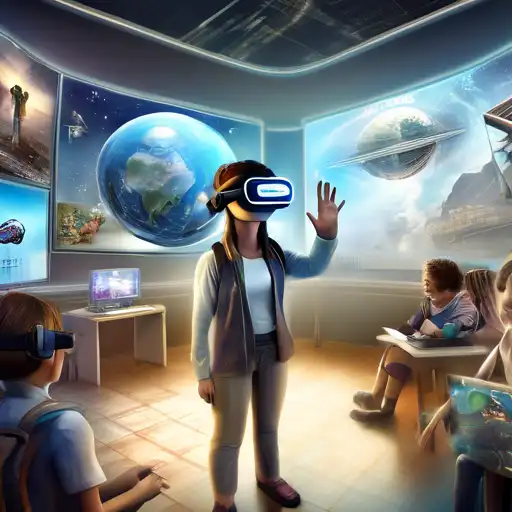Introduction to Virtual Reality in Education
Virtual Reality (VR) is rapidly transforming the educational landscape, offering immersive learning experiences that were once unimaginable. This technology enables students to explore complex concepts in a visually engaging and interactive manner, making learning more effective and enjoyable.
The Benefits of VR in Learning Environments
VR in education offers numerous advantages, including enhanced engagement, improved retention rates, and the ability to simulate real-world scenarios. Students can virtually visit historical sites, conduct science experiments, or even explore outer space, all from the safety of their classroom.
- Engagement: VR captures students' attention like never before, making learning fun and interactive.
- Retention: Immersive experiences help in better retention of information.
- Accessibility: VR makes education more accessible to students with different learning styles and needs.
Implementing VR in Schools and Universities
Many educational institutions are now incorporating VR technology into their curricula. From medical schools using VR for surgical simulations to history classes taking virtual field trips, the applications are endless. However, successful implementation requires careful planning, adequate resources, and teacher training.
Challenges and Considerations
Despite its potential, VR in education faces challenges such as high costs, technical limitations, and the need for quality content. Educators and developers must work together to overcome these hurdles to fully realize VR's educational potential.
Future Prospects of VR in Education
The future of VR in education looks promising, with advancements in technology making it more affordable and accessible. As VR continues to evolve, it will play a pivotal role in shaping the future of learning, making education more interactive, inclusive, and effective.
For more insights on innovative learning technologies, check out our article on EdTech Trends Shaping the Future of Education.
Conclusion
Virtual Reality is set to revolutionize the educational sector by providing immersive and interactive learning experiences. While challenges remain, the potential benefits of VR in education are undeniable. As technology advances, VR will become an integral part of learning environments worldwide, opening up new possibilities for students and educators alike.
